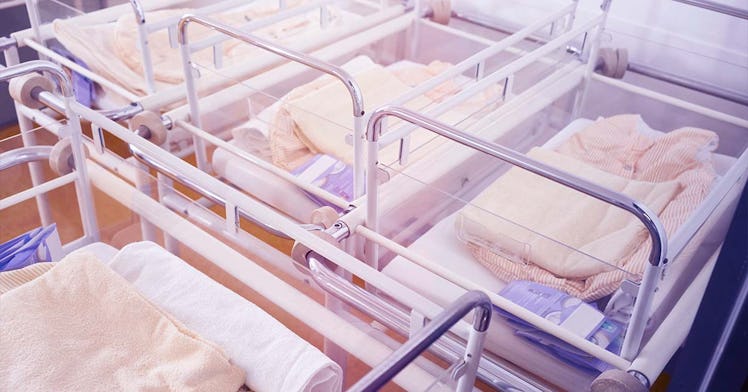It Sure Looks Like We’re in a COVID Baby Bust
“People make long-term decisions when they have confidence about the future, and if there's anything that undermines confidence about the future, it's this massive pandemic.”

Looks like people aren’t making babies like the experts thought they would be due to COVID-19. Yeah, remember? Remember when people were actually suggesting that the pandemic would lead to a baby boom in late 2020 and early 2021?
Turns out that boom never happened, and, in fact, the opposite has occurred. We are in a baby bust. That’s despite the fact that couples have been stuck inside with little to do, few to talk to, and nowhere to go. People have decidedly not been making babies at the rate that experts initially predicted.
Understandably, people may have had a lot of other things on their minds, especially during the early aughts of the COVID-19 pandemic. Many states have been keeping track of 2020 birthrates, and they seem to show a decline compared to this time last year. Compared to December 2019, December 2020 birth rates were down by 8% in Florida, by 5% in Arizona, and 7% in Ohio, suggesting that people weren’t exactly getting busy in March when the first lockdowns were put in place in the U.S.
On the other hand, Spectrum Health, a Michigan hospital, reported a 3% increase in babies born, and Brigham & Women’s Hospital in Boston did not report a significant decrease. But one hospital having more births and another having no difference does not a baby boom make.
Philip Cohen, a demographer and sociologist from the University of Maryland, explained the bust as such: “People make long-term decisions when they have confidence about the future, and if there’s anything that undermines confidence about the future, it’s this massive pandemic.” The declining birth rate isn’t a new trend, however — COVID-19 (and the massive economic and social problems alongside the pandemic itself) just exacerbated a growing issue of decreasing birth rates that existed already. Amid the pandemic, Cohen has also noticed a decline in births over the past few months, plus a drop in Google search queries about pregnancy and sex.
In addition to some couples potentially delaying pregnancy during COVID-19, social distancing and lockdowns mean that fewer people are having casual sex, which may have led to a decline in unplanned pregnancies. Stress could have also played a role in the declining birth rate. According to Cohen, “If you were pregnant in December or January and then had a huge stressful event in February/March, it’s possible people had more miscarriages.” He also suggests that more women may have had abortions in 2020, explaining, “It’s possible people had more abortions, although people also had difficulty accessing abortion services. So we don’t really know.”
So, it looks like that baby boom might not happen. But here’s to hoping that a post-vaccine, post-lockdown future at the end of 2021 or in 2022 could lead to some more birth announcements!